ERP is a process management software that enables a company to use an integrated applications system. It can manage the business as well as automate various back-office functionalities associated with human resources, services, and technology. Typically, it incorporates all facets of operation such as product planning, it's development, manufacturing, marketing, and sales, under one application, database, and user-interface. With an ERP you can get a 360-degree view of all of your business in real-time.

The deepest and most powerful battle and debate of the cloud ERPs has been and still is Odoo vs NetSuite with a fascinating clash being made for both options. When considering prime ERP solutions both Odoo and Netsuite are at the top of the list. When you investigate the technical infrastructure, flexibility, UI/UX, and cost of every solution, it becomes quite apparent that Odoo is a fantastic alternative to NetSuite. Pound for pound, you’re getting to get far more value for each dollar you spend with Odoo than you'd with NetSuite.
With (small to medium-sized business) being Odoo’s target market, it's no surprise that dozens of companies, each and each day, adopt Odoo over NetSuite. Even more interesting is that a lot of Enterprise-grade companies are now making the transition also, for instance, Toyota, Danon, McKinsey & Co, IMB, and so on.
Many IT professionals have spoken up that Odoo is that the way forward for business technology given its price point, combined with the technical freedom and adaptability it lends to businesses as they evolve in today’s fast-changing world.
Going back in time, Odoo initially started as an OpenSource ERP called OpenERP (where they literally built software that folks within the community could install for free). Odoo used this model to draw in developers and IT professionals at the bleeding fringe of innovation so as to start building an ecosystem focused on intellectualism and technology within the business. In doing this they quickly gained 2.5+ million users and thousands of developers able of implementing and supporting the solution. In 2015, after the huge rise, they decided to rebrand the corporate and named it Odoo, and released a proprietary product called Odoo Enterprise, which is their professional grade product which they stamped with their personal guarantee when it involves support, upgrades, updates, and even implementation. This was when companies like NetSuite took notice.
Today Odoo Enterprise is formed from over 50 different apps, additionally to 27,300+ 3rd-party apps/plugins available on the Odoo app store. The app store offers a comprehensive set of options when it involves functionality, fulfilling every minor and major business need, regardless of which industry the business belongs to. Today Odoo has quite 5 million users and 50,000 customers (companies) stemming from all different industries and sizes. Moreover, the Enterprise solution is vigorously getting used in over 120+ different countries, available in 120+ different languages. Many say Odoo is that the first truly global ERP.
Odoo vs Oracle Netsuite ERP: What does Odoo & Netsuite offer
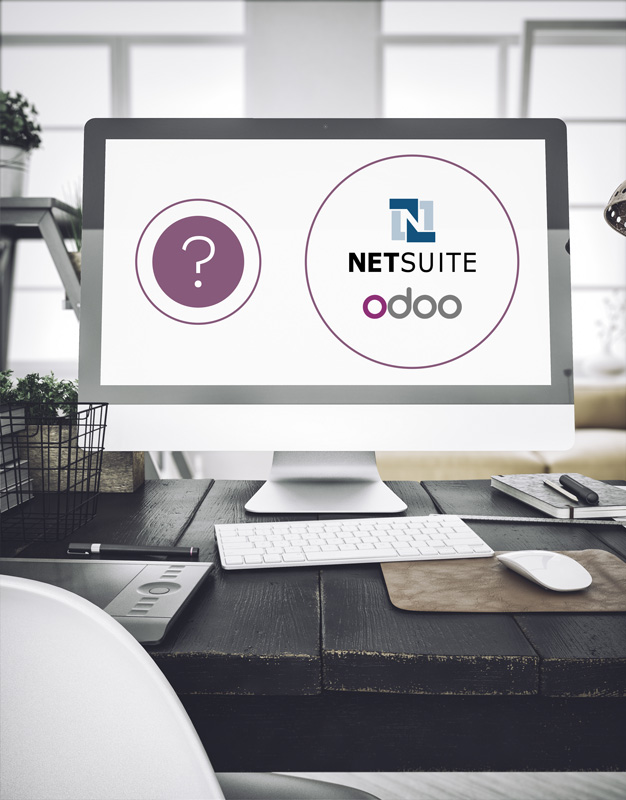
With regards to checking Odoo and NetSuite from an IT angle, you will need to concentrate on the specialized engineering architecture, just as on the control and claim of data - two significant points to any business. While NetSuite makes it hard to accomplish the back up of your information or to progress away from their framework, Odoo, then again, saw the suffering NetSuite was making for organizations and adopted the contrary strategy by making it easy to reinforce information or potentially change away from the framework. Odoo takes into account reinforcements & backup whenever, anyplace, thusly considering you to genuinely take claim & control of information. The times of being held prisoner by corporate powers like the case with NetSuite is long done. Another center difference is having control over the Odoo source code, which is the place where Odoo truly sparkles regarding offering limitless alternatives around features/services.
In contrast, NetSuite comes as hosted ONLY, which frequently gives NetSuite all the influence they require to climb up costs every year or provide overwhelming cost estimates to customize and redo the solution. Also, NetSuite fundamentally utilizes javascript and the "suite content" in order to add any additional use to the application - which is hard to utilize and can be costly.
Cost is one more baiting factor worth thinking about when looking at Odoo and NetSuite. NetSuite's license charges are very costly when taking a look at the service/value you're getting. All things considered, the license expenses are 4 or 5 times the Odoo authorizing & license charges, dependent upon the number of modules and clients.
Additionally, implementation & execution is a lot simpler with Odoo versus that of NetSuite, as Odoo depends on Python and XML as the center language. In contrast with finding a SuiteScripter, discovering Python mastery in the market is simpler as those capacities are considerably more commonplace and commoditized.
There are numerous client surveys that advance Odoo as the best ERP for assembling, retail/appropriation, sales & accounting, online business, or expert administrations. With its advanced interface and incredible portable application execution, Odoo puts NetSuite in a dim spot with regards to UX/UI. It has been reputed that NetSuite salesmen really utilize Odoo's CRM &to deal with their day by day exercises and sales pipelines are given their convenience and adaptability around reports. Shouldn't that reveal to you something?
Odoo vs Oracle Netsuite: Head-to-Head
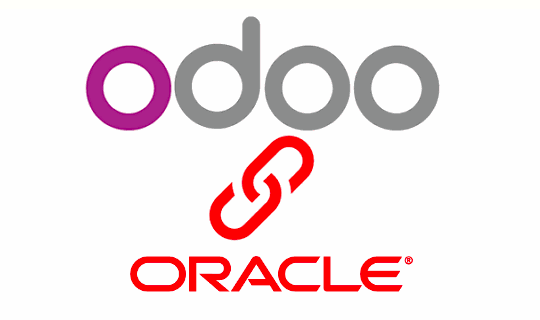
Customer Relationship Management/
Order Management/Distribution Management/
Project Management/Inventory Management/
Analytics/Reporting.
Oracle, then again, doesn't provide Distribution Management, Personnel Management, Customer Relationship Management, and Warehouse Management.
As to the utilization of Odoo and Oracle for different platforms, while Oracle is just viable with the cloud, Odoo is viable with Windows, Mac, cloud, and runs on Android and iOS mobile phones.
Odoo is provided in more than 50 languages:
English/Arabic/Chinese/German/Japanese/Hindi/French/Swedish/Russian/Italian/Spanish/Dutch etc.
While Oracle is accessible only in English.
Inventory Management
1. General
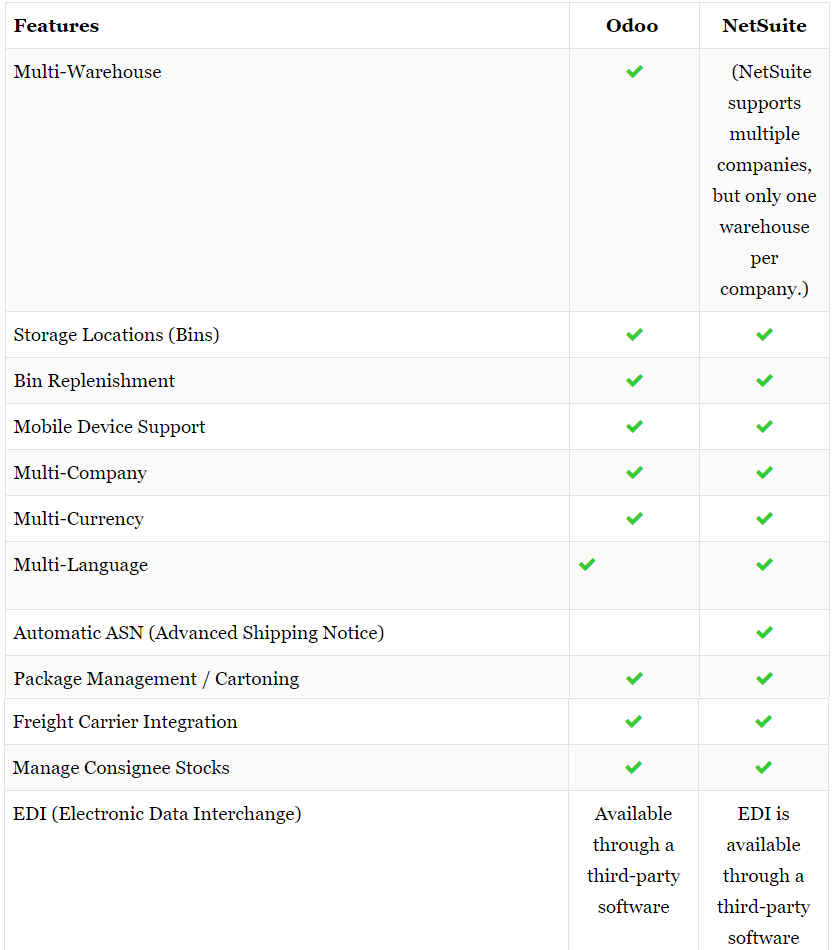
2. Products
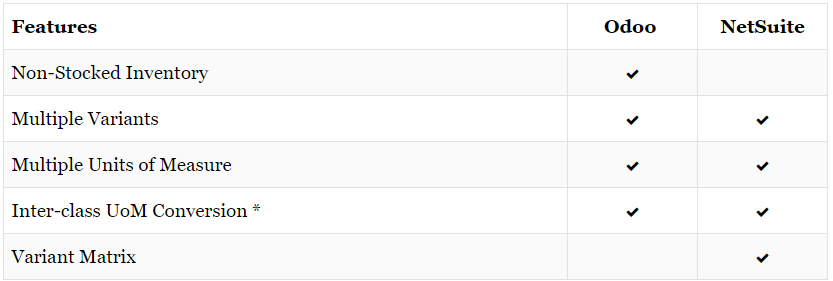
3. Traceability
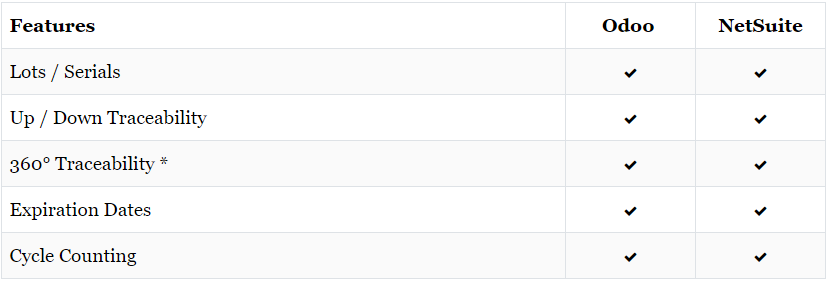
4. Reporting

5. Barcode Support
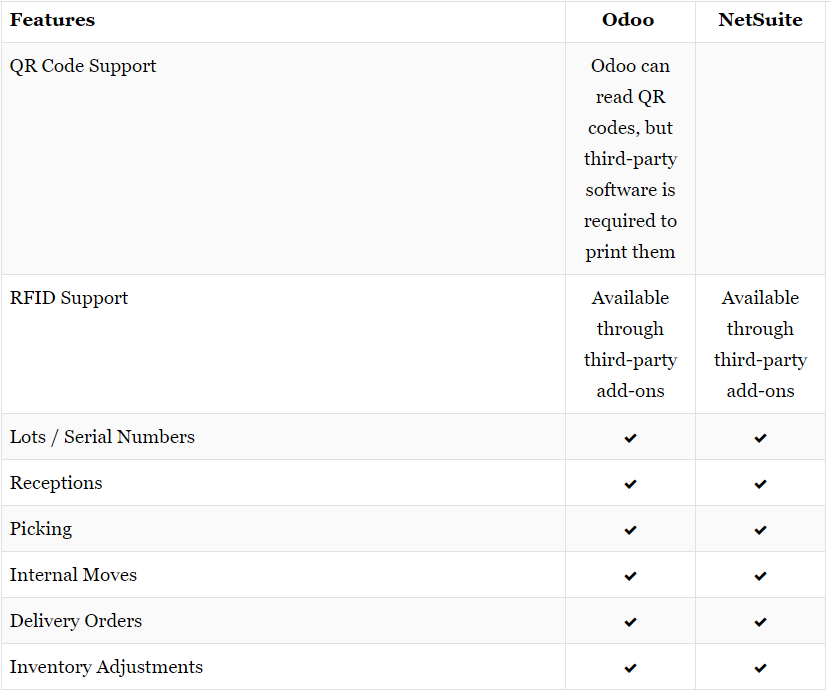
6. Routings
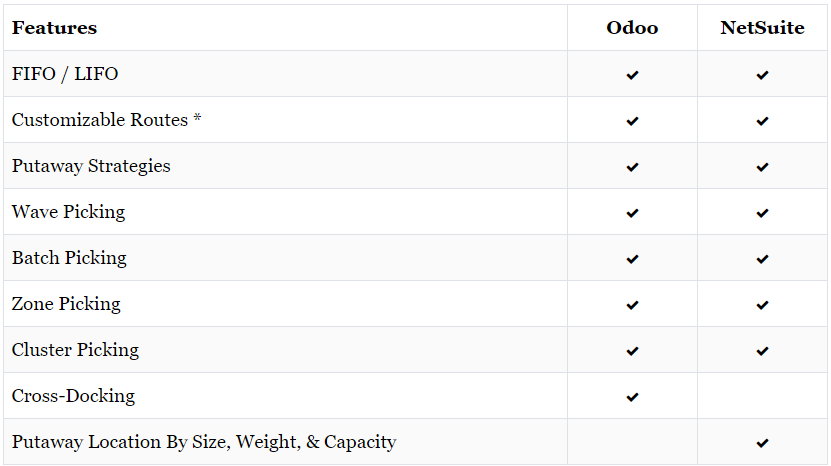
Supply Chain
1. General

2. Purchases
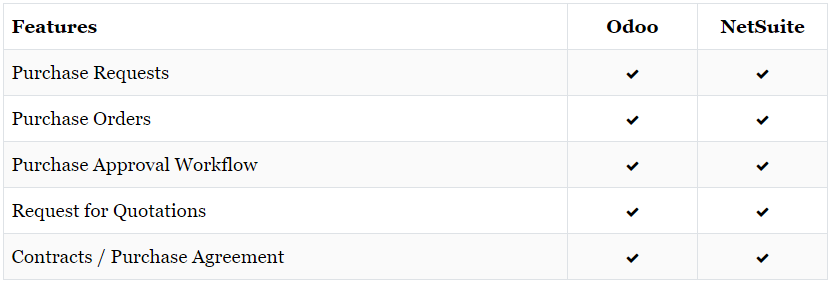
3. Automated Procurements

Manufacturing
1. General
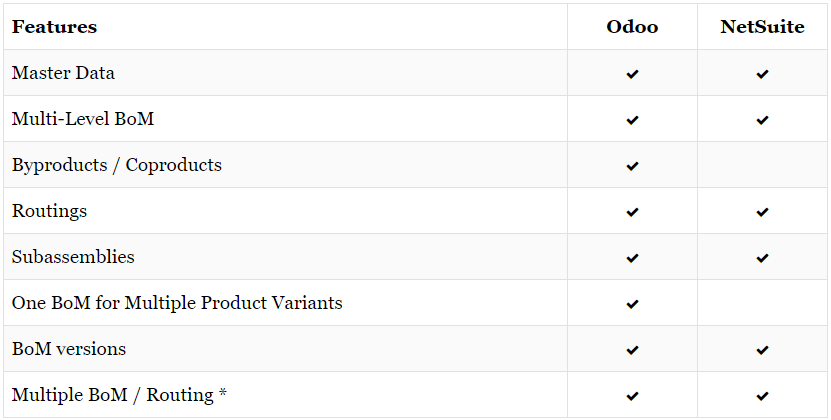
2. Planning
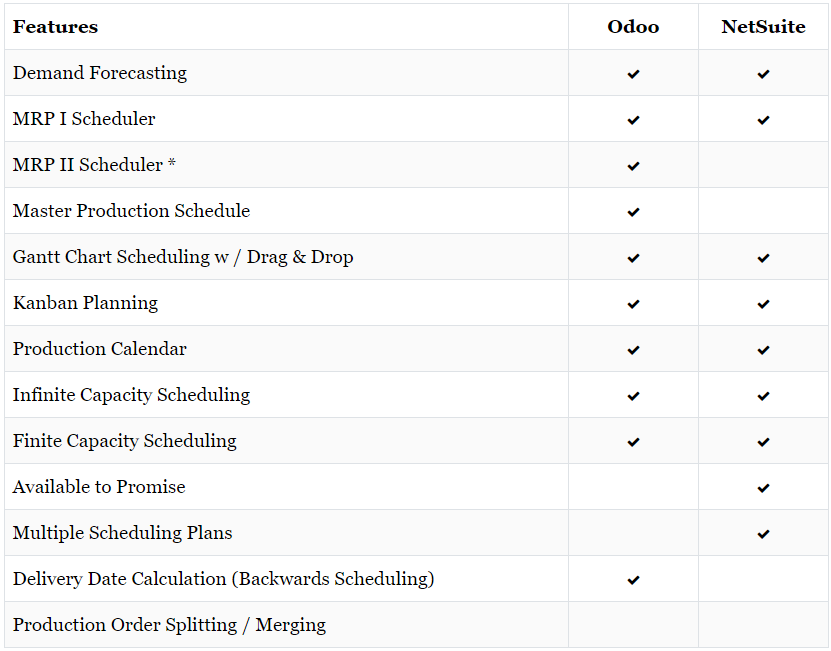
3. Operations
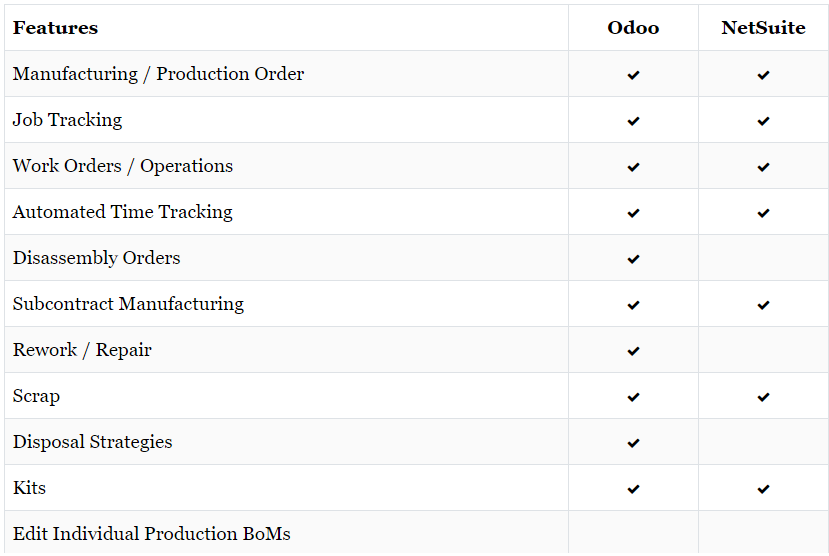
4. Costing
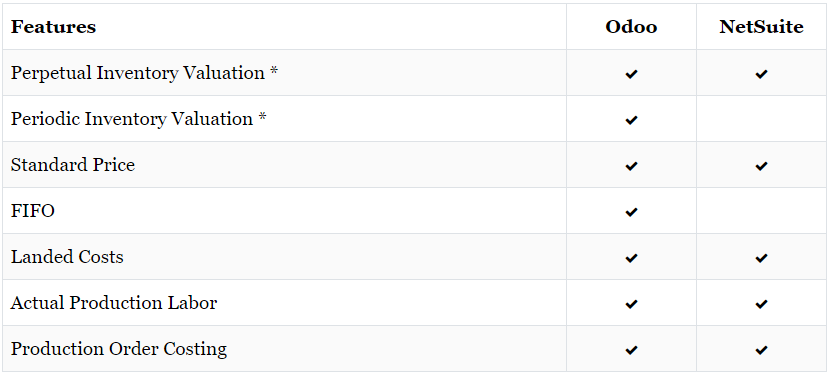
5. Shop Floor Control
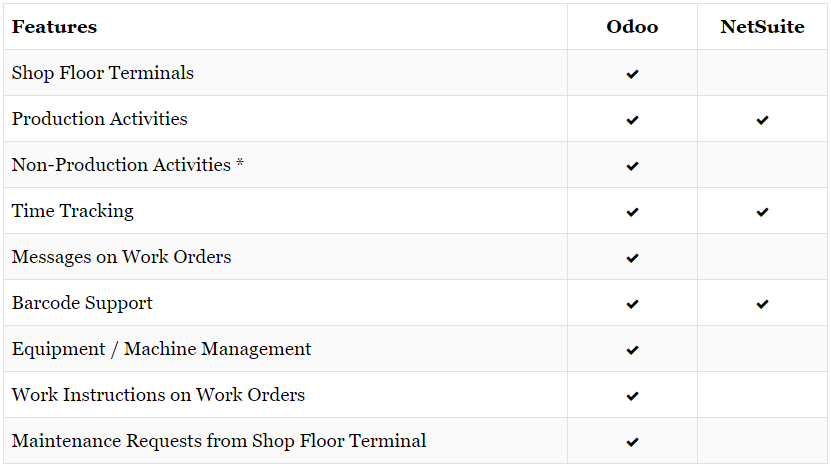
6. Human Resource
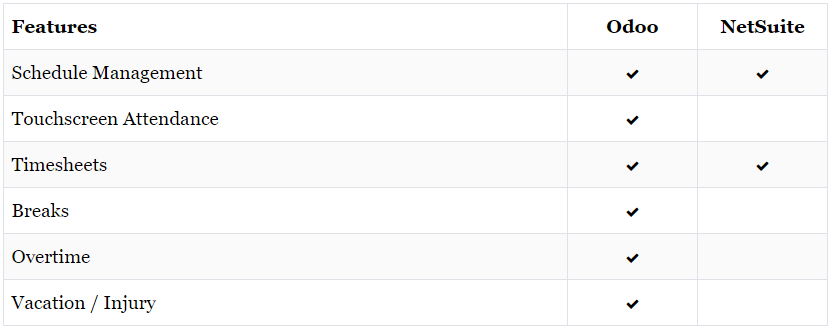
7. Reporting and Forecasting
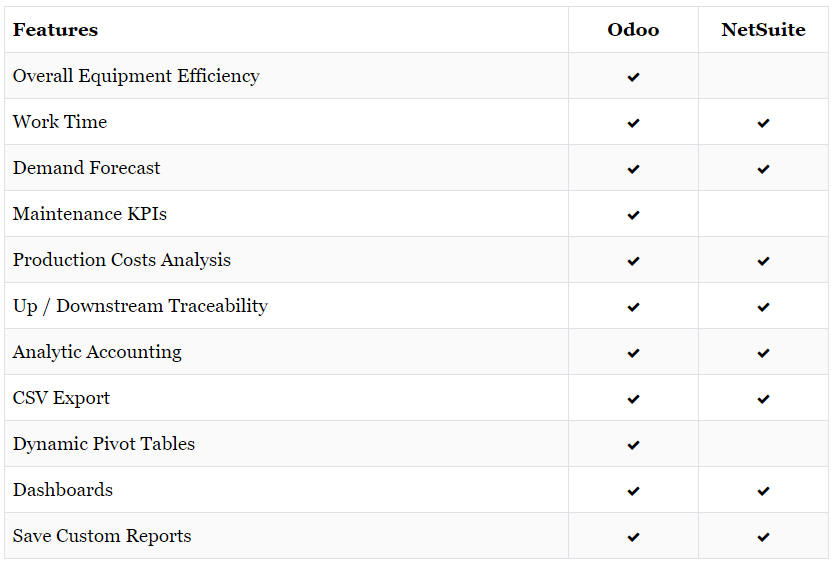
1. Scheduling and Request Handling
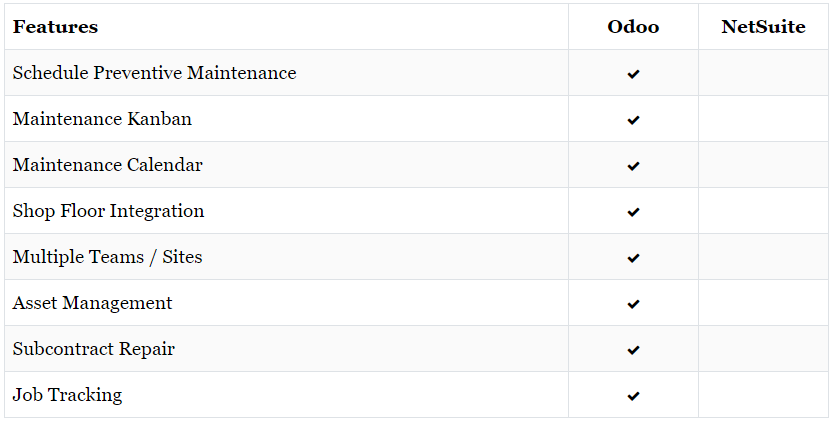
2. Parts Management
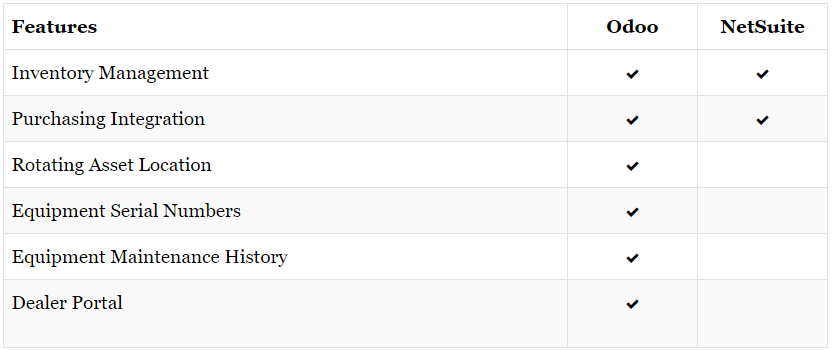
QMS
1. Quality Control
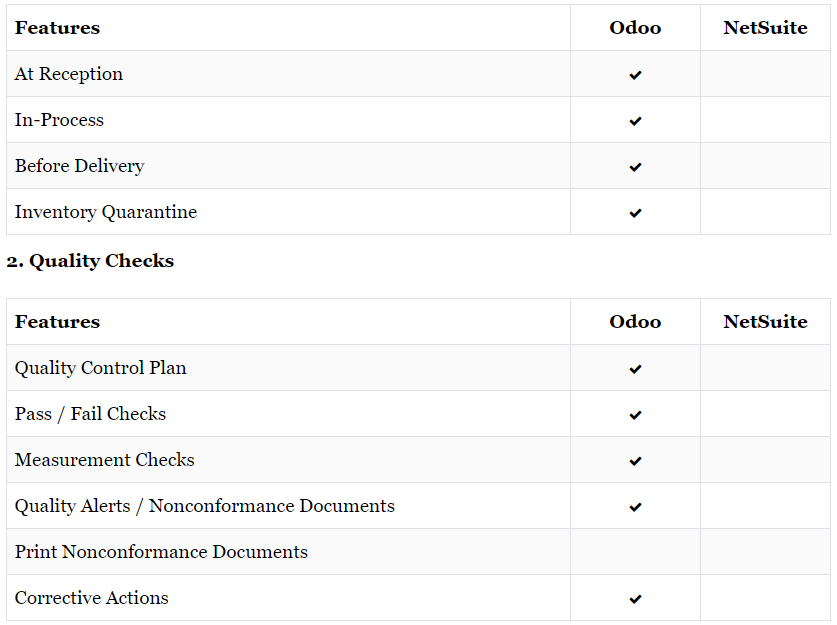
2. ISO9001 Tools
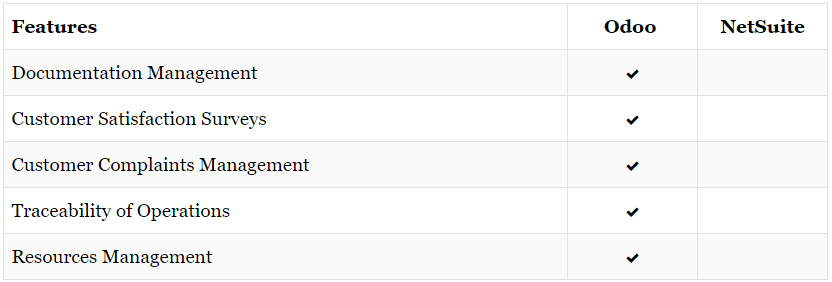
3. Reports

4. Product Lifecycle Management
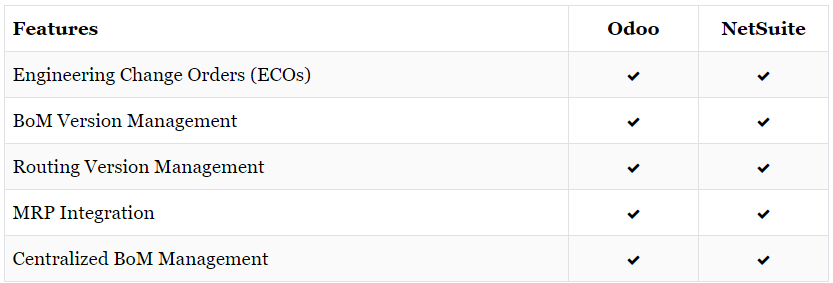
5. ECO Management
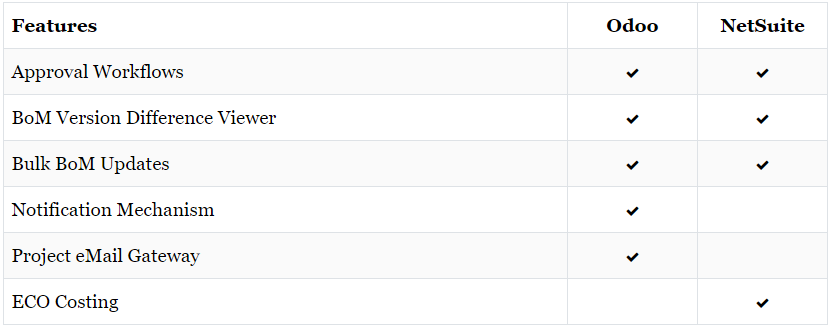
6. Third-Party CAD Integrations

Conclusion:
Whether or not you pick Odoo, NetSuite, or some other ERPs out there, understanding this will be a vital advance for your business as they choose which solution to put spend on. Hence, go with an appropriately planned and all around organized undertaking plan & project to get the foreseen results. Odoo offers numerous administrations to help you in this cycle.
Write to us at sales@erpxcloud.com if you are interested in knowing and implementing Odoo at your business end. Our dedicated team of Odoo experts is ready to customize and implement the right solutions to endure maximum results at your business organization that can promise more leads, sales, and revenue.
50,000+ companies run Odoo to grow their businesses.
Join us and make your company a better place.


